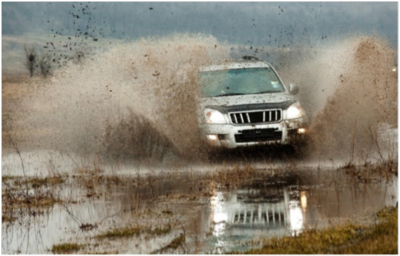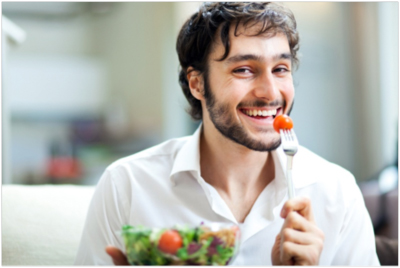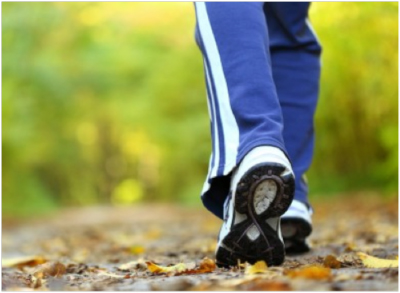 If you’re really serious about losing weight, you want to do everything possible to shift a few extra pounds here and there. You might be surprised to realise that there are a few things you can do to help you lose weight while driving. The following tips aren’t going to get you to do exercise at the wheel or anything like that – they’re going to prevent you from eating while driving, which will in turn prevent you from putting on more weight. It’s very easy to eat while driving somewhere.
If you’re really serious about losing weight, you want to do everything possible to shift a few extra pounds here and there. You might be surprised to realise that there are a few things you can do to help you lose weight while driving. The following tips aren’t going to get you to do exercise at the wheel or anything like that – they’re going to prevent you from eating while driving, which will in turn prevent you from putting on more weight. It’s very easy to eat while driving somewhere.
If you drive regularly, say a daily commute to and from work, for example, and you frequently eat when you drive, try to imagine how much food you’re consuming. You’ll be surprised how much it adds up to. It can be easy to fall into the trap of not realising how much food you’re eating while driving. If you can cut out eating while driving altogether, you’re going to put on less weight and this should contribute towards weight loss. You aren’t going to lose tons of weight by cutting out eating while driving, but it will certainly benefit you, especially if you practice it in the long run.
Tip one: Avoid temptation
When you’re driving, you’re bound to come across temptation sooner or later. In other words, you’re going to see a fast food restaurant or a supermarket where your favourite naughty foods are sold at very cheap and tempting prices. You’re also very likely to see advert after advert, whether it’s for a new restaurant or a special offer you find irresistible. If you can, plan your route ahead. Try to work out a route that will take you past fewer temptations. If there’s somewhere you drive to and from regularly, finding a route with fewer temptations will (hopefully!) mean fewer chances for you to give in, which should result in less extra food consumed. Try to find a route that won’t take you past that fast food restaurant and that supermarket with the cheap deals on – even if this route takes you a little bit longer, surely it’s better than driving right by the temptation?
Tip two: Make sure you’re full
You’re more likely to fall for those tempting ads and fast food restaurants if you’re feeling peckish. To combat this, simply make sure you’ve eaten before you set off. If you’re only going on a short drive, a quick snack should be enough to keep your hunger at bay and prevent the ads and restaurants from tempting you. If you’re going on a longer journey, try to time it so you’re setting off after one of your main meals. The more you eat beforehand, the longer your hunger’s going to be satisfied for. You’re much less likely to think about food if you’ve just eaten a large meal and you’re feeling full.
 Tip three: Keep your thoughts off food
Tip three: Keep your thoughts off food
Once you’ve thought about food, it’s hard to get it off your mind. If you’re on a long drive, your thoughts can wander very easily and, if you’re hungry, they’re going to drift over to food. To prevent yourself from thinking about food, keep your mind occupied by thinking about something else. Make a music playlist and listen to music for the length of your journey. Listen to an audio book or a radio show. These are just a few examples of the types of things that you can focus your mind on while driving so your thoughts won’t wander over to food. As an extra precaution, try not to listen to anything about food. There’s a place for radio shows about cooking and it isn’t in your car when you’re trying not to think about food!
Tip four: Avoid eating while driving
It goes without saying that you should avoid eating altogether while driving. Even if you feel extremely hungry and you can’t stand it anymore, you should stop yourself from eating at the wheel. Why? Because when you’re eating, you’re less focused on driving and you should always be 100% focused on driving. Eating while driving is practically the same as texting while driving in terms of how much it can distract you from the job at hand. All in all, it’s best not to eat anything while driving; if you absolutely do have to eat, pull over and turn the engine off, then enjoy your pre-packed healthy snacks. If you do resort to snacking while driving – which, again, you shouldn’t do – you’re likely to grab little handfuls here and there. By doing this, you’re not fully aware of exactly how much food you’re consuming, so you’re more likely to consume more of it. Before you know it, you’ve eaten the whole bag. Eating food that’s bad for you while driving is only going to make you feel hungry again soon and it doesn’t do any good to your diet or your wellbeing. If you drive regularly, think about how many times you snack while en route to wherever it is you’re going. Even if you snack while driving just twice a week, that’s still extra calories going in.
Not only is eating whilst driving bad for weight loss, but research has also shown that it can be dangerous too. For more information on how eating whilst driving can be dangerous, read this article.
Tip five: Drive alone
Try not to have any passengers with you in the car. Passengers don’t have to concentrate on driving so they’re more likely to notice all the ads and restaurants. In other words, they’re much more easily swayed by temptation. If you’re driving with a friend and they want to stop off somewhere because they’re hungry, you’re likely to want something as well. If you had been travelling alone, you wouldn’t have had that detour and you wouldn’t have consumed those extra calories. If you have to drive with children in the car, make sure they’ve eaten before you set off and make sure they have plenty of snacks so they don’t ask to get to any restaurants along the way.
Tip six: Try a diet pill
There are thousands of different diet pills out there and many of them can be used to help you lose weight while driving. Any good diet pill should help you to lose some weight, but when it comes to driving, you want a particular type of diet pill, appetite suppressants, to keep you from feeling hungry and eating while driving. It also helps to use diet pills that give an energy boost and increase metabolism – this way, you’re going to have a bit more energy to help you get through a long drive. To determine the list of best diet pills, a number of reputable sources were consulted, including HealthyCompare, a website which reviews various dietary supplements. You can view full list of diet supplements that HealthyCompare has reviewed here.
If you choose to use a diet pill or any sort of weight loss supplement, always read the label and make yourself aware of any potential side-effects. Not all pills and supplements are suitable for everyone. Additionally, you should always stop taking any pills or supplements should side-effects persist or should you notice any severe side-effects. Always read the instructions carefully and never exceed the dose limit. Whenever you use a pill or supplement, the effects and benefits are never 100% guaranteed, though many manufacturers do offer money back guarantees.
 Tip seven: Is driving really necessary?
Tip seven: Is driving really necessary?
Even though the whole point of this article is to offer ways to lose weight while driving, it’s obvious that simply not driving is itself a great way of losing weight. Ask yourself whether it’s really worth it driving for two minutes to the shops. If you can walk, then walk. You’re saving money by avoiding driving whenever you can. The less you drive, the less petrol you’re using. The less you drive, the more you’ll have to walk and the more you walk, the more weight you stand to lose. Instead of driving for short distances, try walking there and back instead. It will take a bit longer, but it’s a lot more productive and your body will be glad of the exercise.
Researchers from the University of Illinois conducted a study that yielded results showing that driving less could be just as effective at helping weight loss as cutting down on calories. So, next time you have to make a trip, think to yourself, do I really need to drive? You may be surprised by how much you could enjoy a nice stroll down the road; it really isn’t as painful as it sounds!
So, there you have it, 7 tips to help you lose weight whilst driving. Most of these tips are focused on avoiding food whenever you can while driving. If you can drive from A to B without eating and without making detours to get something to eat, you’re making good progress.

